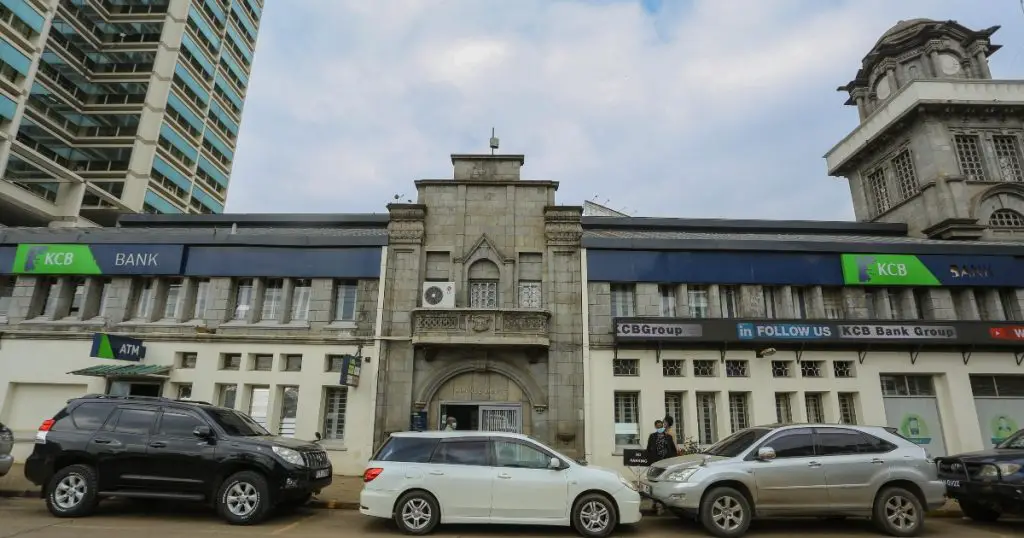- KCB Bank Kenya has invested over KSh 120 billion to support Oil Marketing Companies (OMCs) importing fuel as it seeks to consolidate its support to the energy sector
- KCB has been facilitating oil importation into the country by financing the oil firms under its portfolio that have won business under the Open Tender System (OTS) through the Ministry of Petroleum and Mining
- KCB Group CEO Paul Russo said that KCB is a champion of regional trade, extending its services across the border of East Africa and beyond as a catalyst for the energy sector
KCB Bank Kenya has injected over KSh 120 billion to support Oil Marketing Companies (OMCs) importing fuel as it seeks to consolidate its support to the energy sector.
The Bank has been facilitating oil importation into the country by financing the oil firms under its portfolio that have won business under the Open Tender System (OTS) through the Ministry of Petroleum and Mining.
This gives the OMCs a strongroom to import refined white oils from multinational oil suppliers for distribution across in Kenya and the wider East African region. The tenders financed include the importation of JET A-1(Jet Fuel), PMS (Petrol) and AGO (diesel) products.
KCB Group CEO Paul Russo said the bank is a champion of regional trade, extending its services across the border of East Africa and beyond as a catalyst for the energy sector.
“We are working with the oil marketers to better support them to compete in the global petroleum market.”
Under the OTS system, the winning oil marketer imports the fuels on behalf of the other firms using the confirmed allocations; the other oil marketers are mandated to offtake their volumes upon arrival.
With the government indicating doing away with oil subsidies, fuel prices in the country are set to surge in the coming months. Therefore, KCB’s contribution towards the stabilisation of the prices in the short term will be vital.
The centrality of energy in the economy has been identified as a key driver of the development agenda with a ripple effect in all sectors of the economy.
Since 2005, Kenya has been importing refined petroleum products through the Open Tender System — whereby the winning bidder solely imports the petroleum products and delivers them to the port of Mombasa, where other oil marketers buy from the importer.
Importation of petroleum products through the OTS allows the oil marketing companies to access petroleum products at the same price and therefore levels competition in the petroleum market.
OTS is run through monthly tenders and entails sourcing of petroleum predominantly from the spot market, whereby petroleum is sourced from the open market without any prior contracts. The industry recognizes that OTS is an effective supply system that creates a competitive and transparent means of availing the product to Kenyans through economies of scale.
Kenya: KCB six months net profit rises by 28.4% to reach KSh 19.6 billion
KCB facilitates local and cross-border trading through operations and liquidity financing, as well as mitigating risks inherent in trade.
In a related story, the International Finance Corporation (IFC) has disclosed that it would extend USD 150.0 million (KSh 18.0 billion) to KCB Group in the form of a senior unsecured loan with a maturity of 7 years and a grace period of 2 years.
The Exchange Africa reported that they aim the credit facility at supporting the growth of the bank’s climate finance portfolio, which entails clients in sectors such as manufacturing, real estate and agriculture.
Notably, this is the third facility from IFC following a 10-year USD 150.0 million and a 7-year USD 75.0 million extended to KCB Group in 2020 and 2018, respectively, to scale-up lending to Micro, Small and Medium Enterprises (MSME).
Kenya: IFC gives KCB $150m to support manufacturing, real estate sectors
This makes KCB Group the biggest borrower from IFC among tier one Kenyan lenders, with a cumulative amount of USD 375.0 million (KSh 45.0 billion).
Upon disbursement, the credit facility is expected to provide the Group with a strong financial capacity to lend to MSMEs and support climate finance transactions.
As of H1’2022, KCB Group’s green lending as a percentage of its loan portfolio stood at 11.7 per cent, with the Group keen to align to global best practices and Environment Social and Corporate Governance standards.
